I tried Nebula’s new portable 4K laser projector, and here are 6 things you need to know before you swap your TV for one
Cheaper than having several TVs, but is it really up to the challenge?
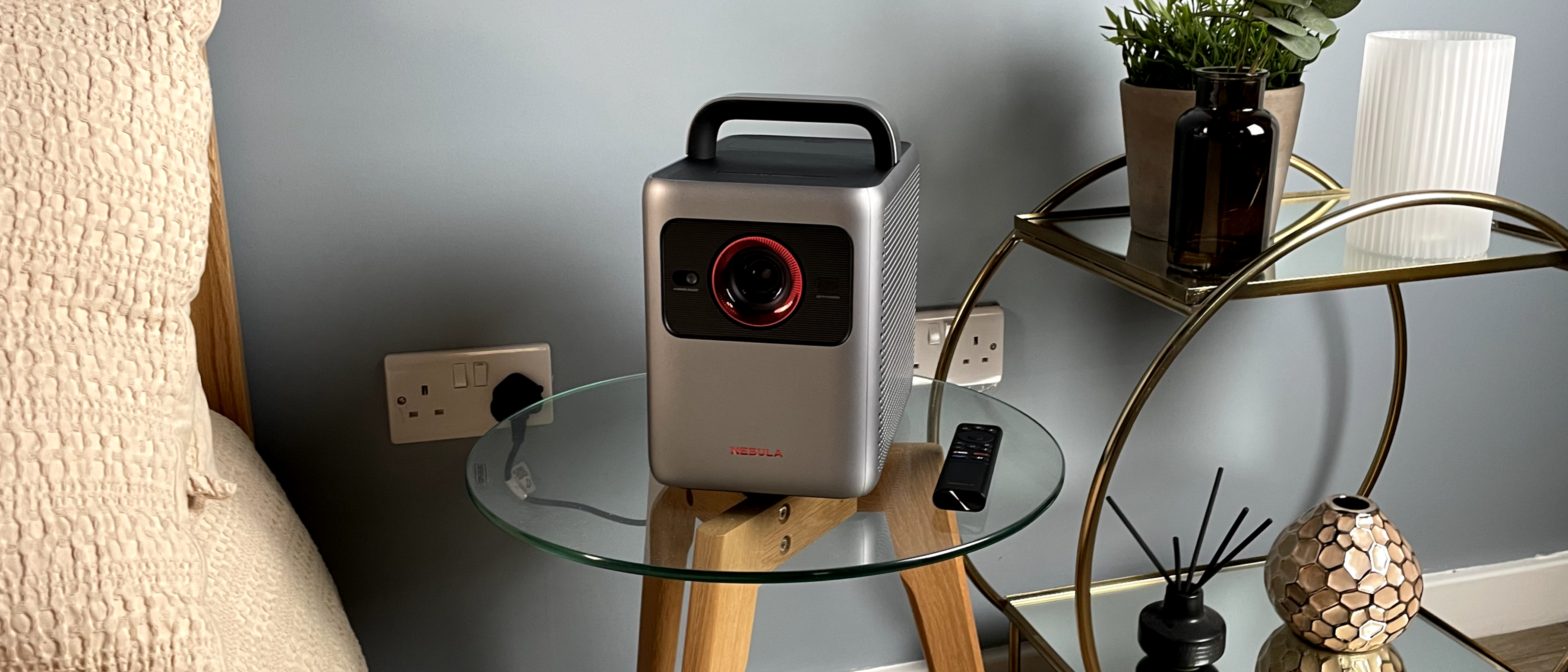
I must admit, the moment the new Nebula Cosmos 4K SE landed on my desk, I was very excited. I’ve previously been lucky enough to try out the Nebula Mars 3 Air and loved it, and the Cosmos 4K SE looked like it could easily become my new number one. There’s no doubt that it could be a contender for a spot in our round-up of the best 4K projectors, especially as this particular model has built-in Google Play, which none of the projectors in the current ranking possess.
Because of the Cosmos 4K SE’s portability and impressive-sounding list of features, I began to wonder whether I could realistically replace the TVs in my house with just one projector. I spent a week using the Nebula Cosmos 4K SE instead of my Samsung Smart TV, also testing it out in rooms where I didn’t have any screens to see how efficient it was, and whether it was more or less convenient than having multiple TVs.
Here’s what I learned from my week of projector-only streaming:
- It’s costly, but it’s picture-perfect
The Nebula Cosmos 4K SE is mighty pricey at $1,299.99 / £1,299.99, but I can’t knock the cost considering the fantastic picture quality and great sound. This level of quality isn’t surprising considering it boasts Dolby Vision, Dolby Audio, and the NebulaMaster engine, which is stated to enhance detail by identifying highlights and shadows, and I believe it certainly does.
When teamed with a large projector screen, it was really easy to become immersed in whatever I was watching. Plus, despite its large size, the carry handle made it possible to carry it from room to room fairly easily, so as long as I had some blank space and a plug socket, I was good to go.
While I found the features on offer weren’t quite as impressive or intuitive as I’d hoped, the image and sound quality teamed with the delightfully simple-to-use Google TV interface meant that the high price didn’t quite put me off.
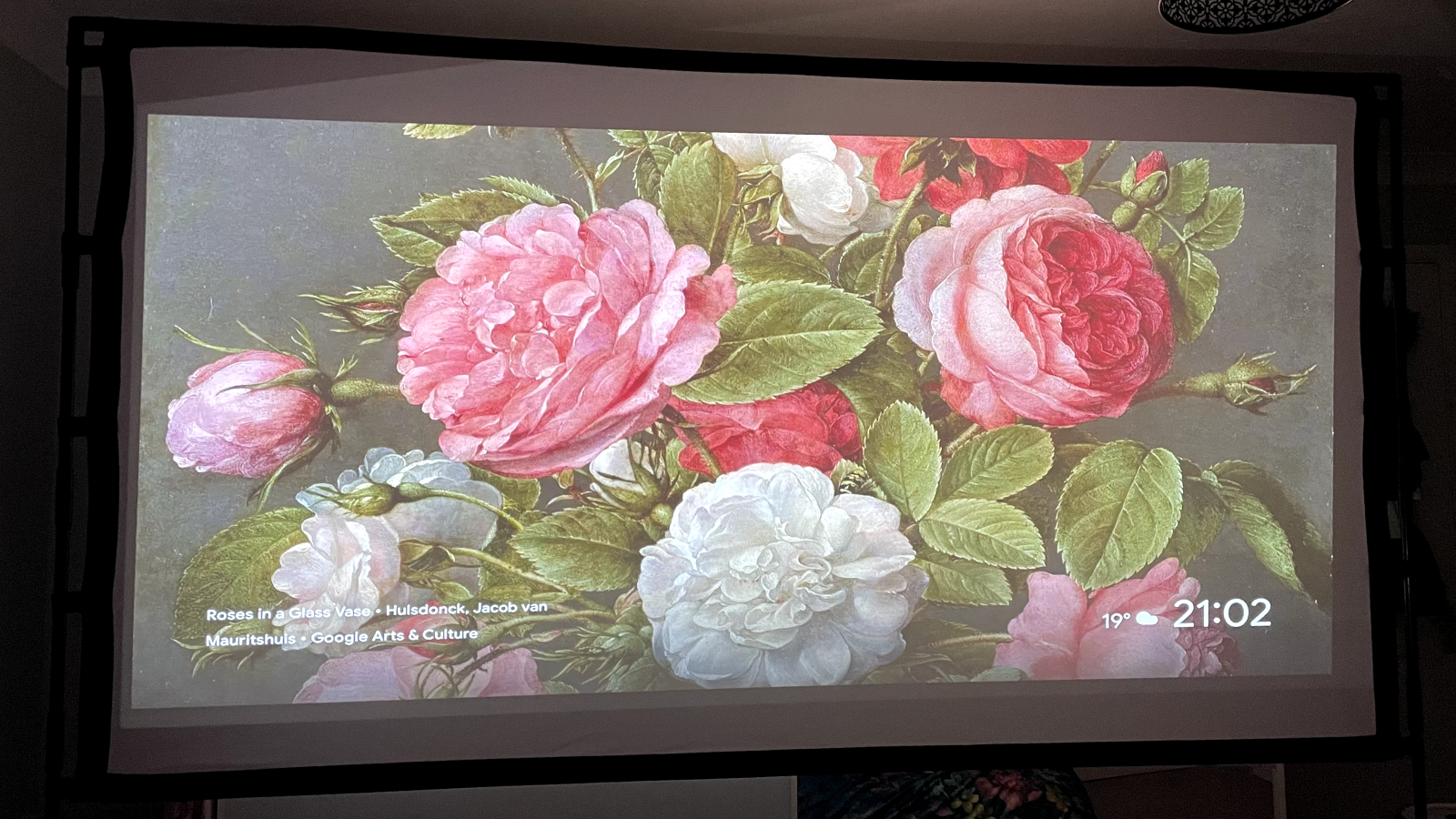
- Big features come in big packages
There’s no way around it, the Nebula Cosmos 4K SE is a bit of a chonk for a “portable” projector. It’s tall, it’s wide, and it’s deep, measuring 10.4 x 8.7 x 6.5 inches / 263 x 165 x 265mm and weighing 9.9lb / 4.5kg. The carry handle certainly makes a big difference in terms of maneuverability, but the projector may still be a bit awkward and heavy for people with mobility issues.
Sign up for breaking news, reviews, opinion, top tech deals, and more.
- Colors and details are jaw-dropping, but there’s one problem
I picked Damsel on Netflix as my first watch and it turned out to be the perfect choice as scenes like the luminescent grubs and the crystal caves looked absolutely stunning. Colors were beautifully bright and vivid throughout, and the level of detail was impressive, down to fibers on clothing and strands of hair. My only real complaint with the image quality, which is something notoriously hard to avoid when opting for a projector over a TV, was that the density of the black wasn’t great. In scenes where main character Elodie ventures into dark caves, black appears gray, so the surrounding details are lost. Scenes that were a bit dark in general were fine, so I can’t really complain too much when the other 98% of my watching experience was perfect.
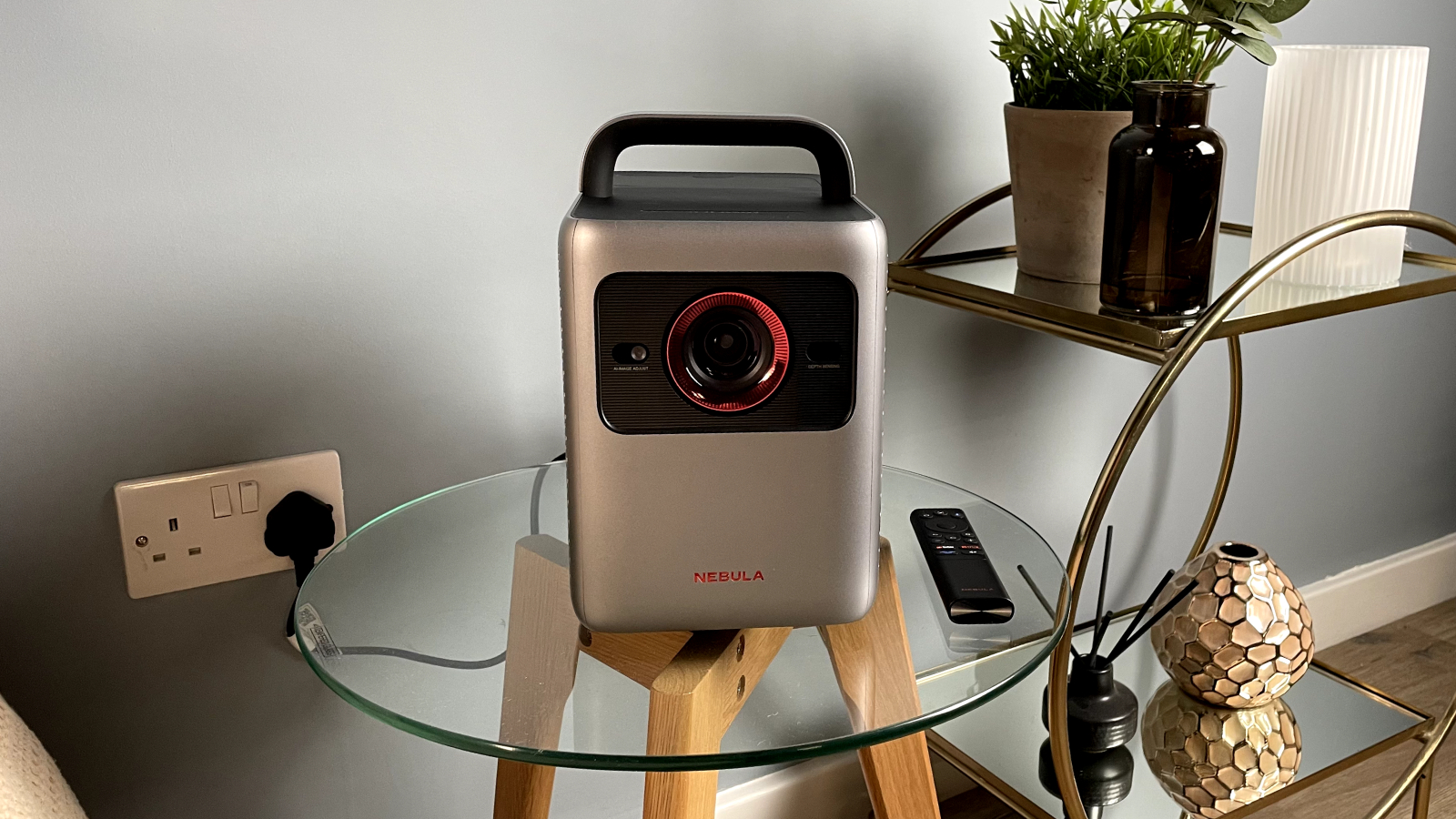
- It’s versatile (mostly)
Naturally, it isn’t the most convenient having a 100-inch projector screen looming at the end of my bed, blocking access to my wardrobe. But it’s still great to have that cinematic option. The alternative, which worked really well for general TV watching, was to aim the Cosmos 4K SE directly at the wall. Most of my walls are painted pale gray (but I have a blush pink feature wall with iridescent glitter in, just FYI), so I was confident that this coloring wouldn’t affect the picture, but the Cosmos 4K SE possesses a Wall Color Calibration feature, which supposedly still gives perfect picture quality regardless of the color of your wall.
I decided to test this feature out in our music testing room, which is painted a deep teal color, both in well-lit and dark conditions. I was disappointed with the Wall Color Calibration feature at first. It didn’t work very well when the room was well-lit, putting a dark blue tint on everything, making it harder to view the image. In darkness, however, it actually worked pleasingly well; after just a few seconds of processing, the colors appeared beautifully vivid once more.
I had to get creative on occasion when it came to positioning the Cosmos 4K SE at home, as the height of the projector off the floor made a big difference. It’s a shame that there isn’t the option to shift the image up or down manually; it can only be altered in the Manual Keystone Correction feature, which has its limitations. I’ve found various mount options available on the Nebula site, including floor and desk stands, so I could easily gain more flexibility in terms of the Cosmos 4K SE’s placement – so long as I have a longe enough extension cable.
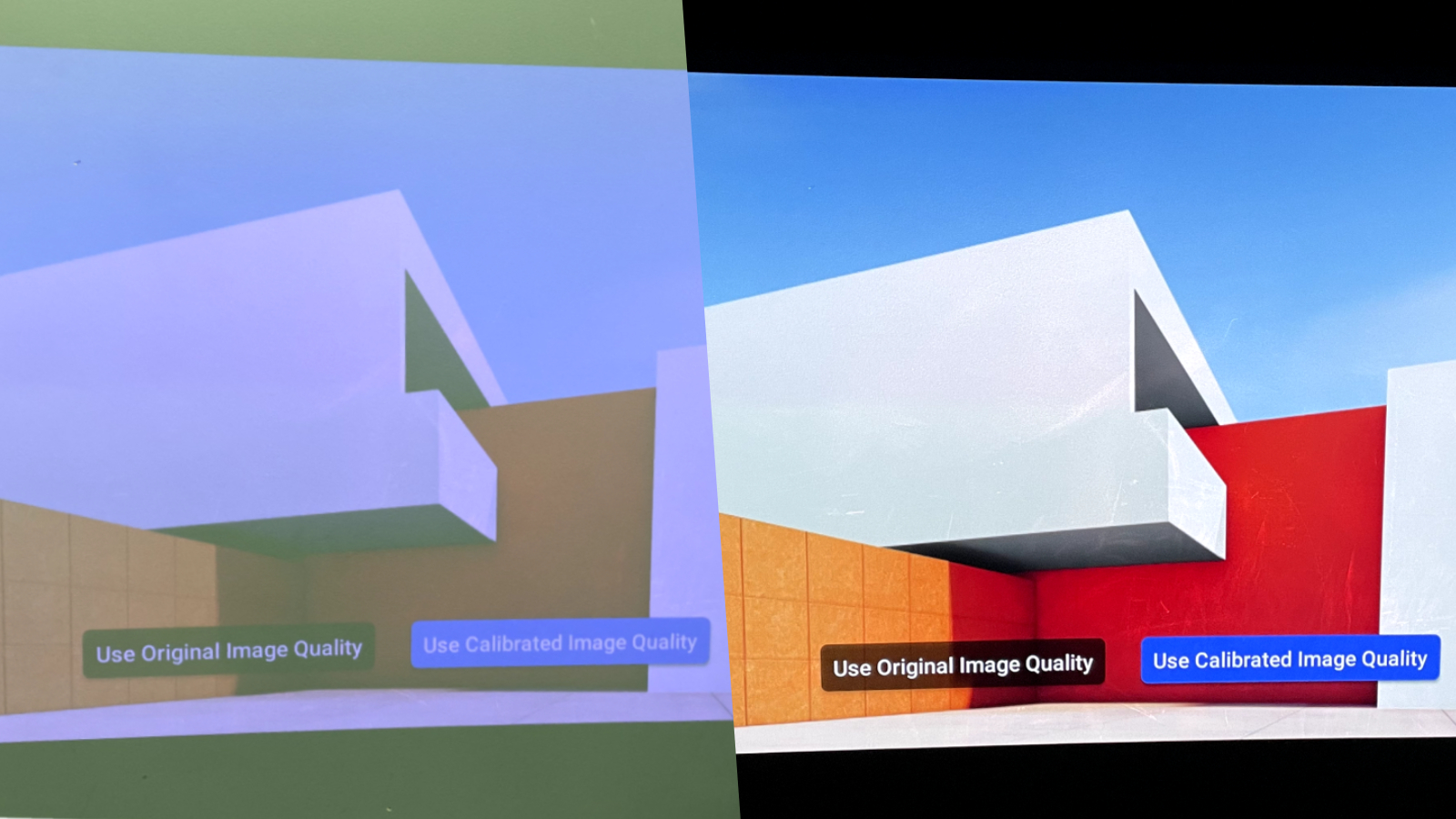
- You’ll never see the light of day
Okay, perhaps that’s a little dramatic. Nebula states that a 60-inch projection can be seen clearly in a well-lit room; now I don’t know what the small print is here, but certainly, when testing in our music testing room, which has bright overhead lighting, the picture was really hard to make out. I found that if there’s some indirect sunlight coming in it isn’t so bad, but it would likely prove to be a struggle on a bright day.
In contrast, I was impressed that when watching at 90-inch screen size I didn’t need to turn off the brightly colored LED lights behind my Samsung TV to watch a partially black and white film on my projector screen. Despite this ambient lighting illuminating the room, there was no noticeable effect on the brightness or contrast of the image as I watched Yorgos Lanthimos’ Poor Things.
- Image size was limited indoors
Although I tested in some decent-sized rooms, the maximum image size I could achieve indoors was 90 inches. The auto screen fit, keystone correction, and obstacle avoidance meant that the image found its way to my projector screen, but it wasn’t central, instead getting fixed to the top right corner, which wasn’t ideal. Fortunately, by using the Manual Keystone Correction function I could just about get it to where I wanted it to be. This involved manually moving each corner of the projected image until the circle in the center was perfectly round to ensure the image wouldn’t be skewed.
This wasn’t so much of a concern when projecting straight onto walls, with the image being projected in a fairly central position both in my bedroom and our music testing room. It is often a little off-center though, so if you’re someone that can’t put up with that, be prepared to do some adjusting.
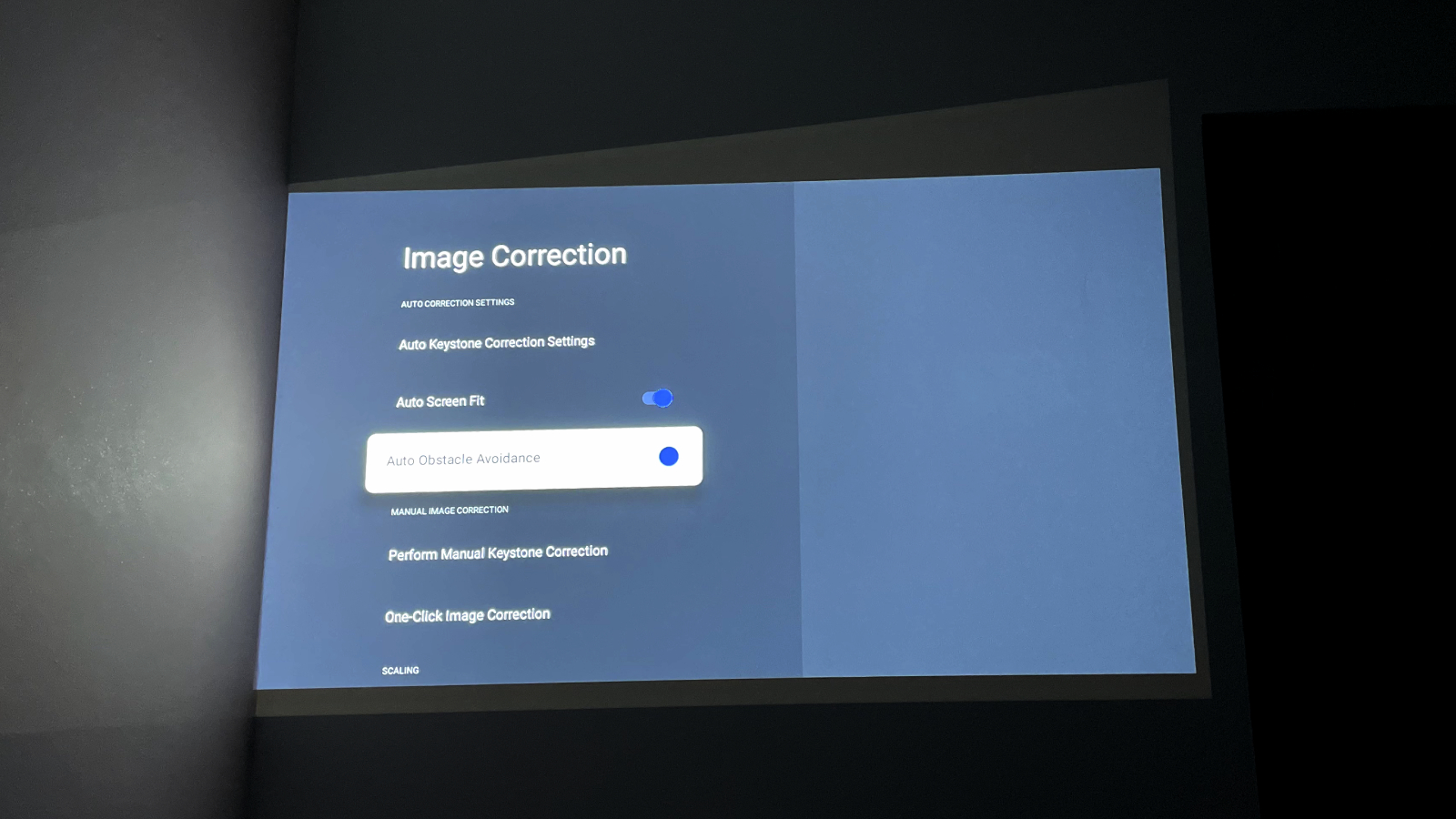
Would I choose the Nebula Cosmos 4K SE over my TV?
This question was harder to answer than I anticipated.
If I were happy to watch TV in semi-darkness forevermore, I would genuinely consider purchasing the Nebula Cosmos 4K SE and forgoing future television purchases. The beautifully vivid visuals and immersive sound were a joy to experience, and I’d happily use this projector night after night. But the truth is, I really enjoy eating my lunch in my sunny living room while watching an episode of Taskmaster, and I don’t wanna give that up.
When it comes to whether I’d purchase the Nebula Cosmos 4K SE to have alongside my TV, I must say that despite the auto screen fit and black density niggles, I am tempted. The color and detail that this projector throws out are stunning, and the built-in Google TV makes it blissfully easy to control. However, at a cost of nearly $1,300 / £1,300, I just can’t justify purchasing one myself. If you’ve got the funds and happen to be on the lookout for something to give you that truly immersive cinema experience at home, then the Nebula Cosmos 4K SE is for you.

Cesci is a Reviews Staff Writer for TechRadar. She writes in-depth reviews based on her real-world testing across a variety of categories, but has a particularly keen interest in home tech, and has written features and reviews about gadgets ranging from headphones to smart lights to graphics tablets. She also has a broad range of experience from working in different industries, from sustainable materials and packaging to skin care.